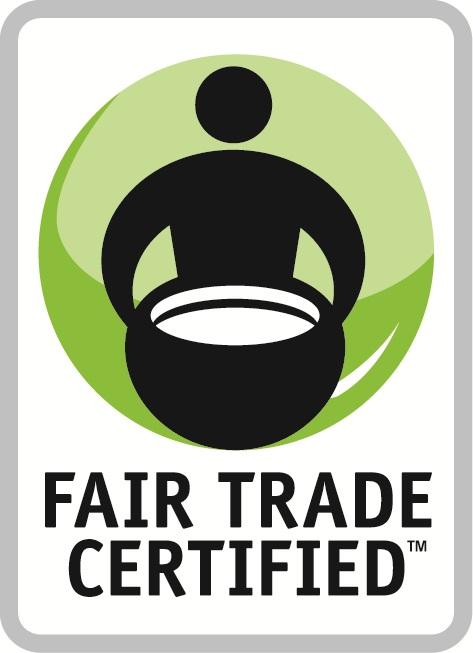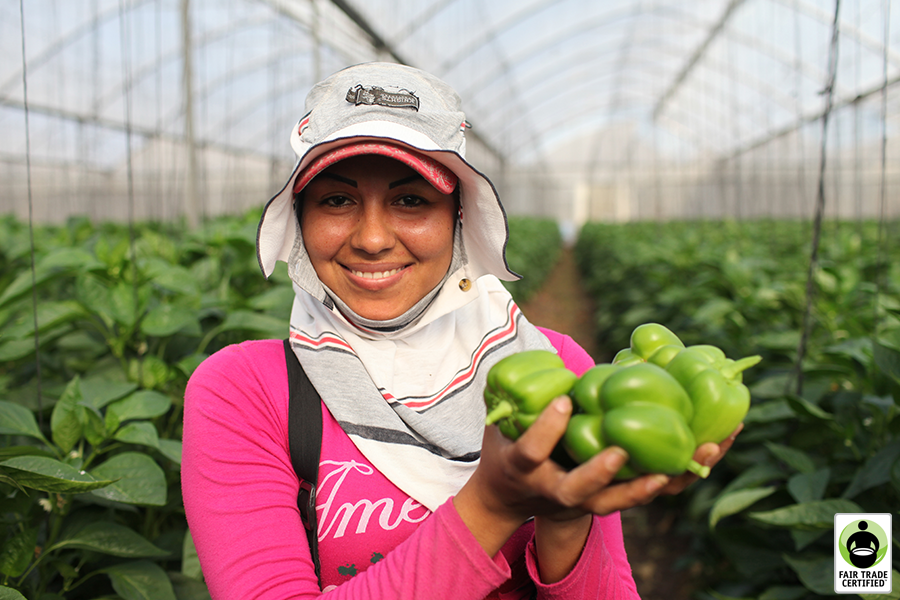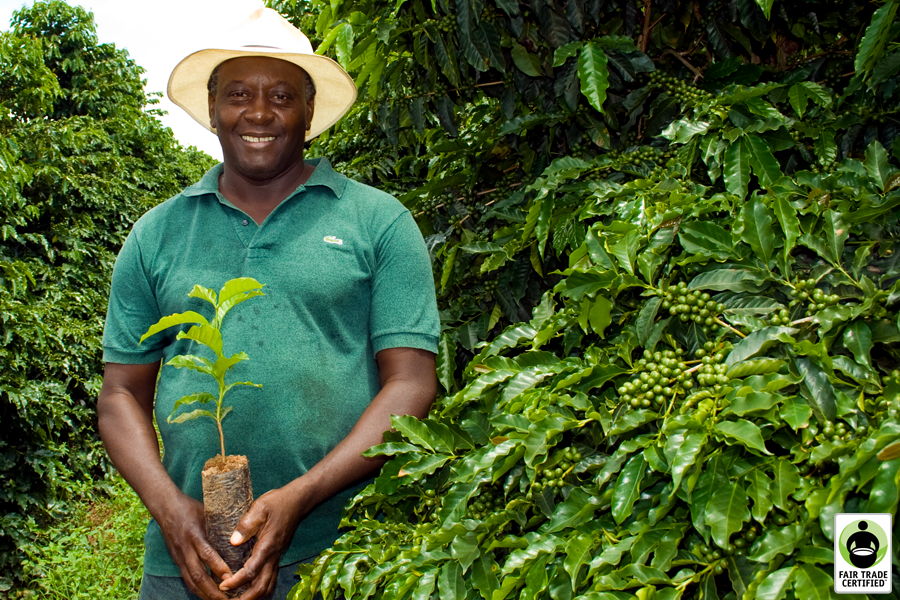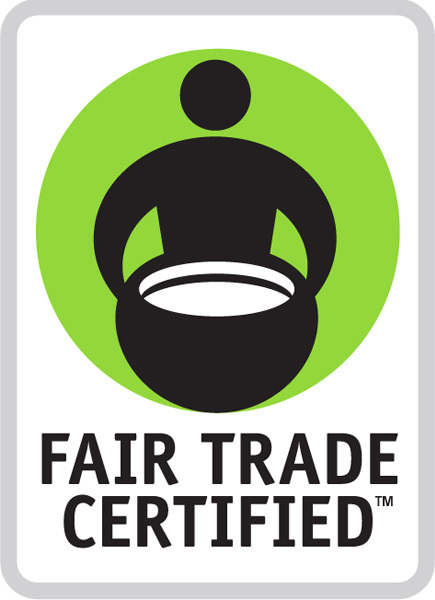The Fair Trade Guide to the 2014 FIFA World Cup
How does your favorite team stack up in terms of production of Fair Trade Certified goods?
The Fair Trade Guide to the 2014 FIFA World Cup
The 2014 World Cup is well underway in Brazil. As you sit on your comfy couch with your Fair Trade certified coffee (or sneak in a game at work —don’t worry, we won’t tell!) and watch countries go head-to-head in the world’s most universally popular sport, we hope you'll take some time and learn about the positive impact that Fair Trade has on farmers in these countries.
BRAZILBrazil, the host country of the 2014 FIFA World Cup, is considered by many to be the favorite to win it all. As they are power in soccer, Brazil is also a power in the production of Fair Trade coffee.
In recent years, Fair Trade USA and other partners have been collaborating directly with Brazilian coffee farmers to improve technical skills, and enhance infrastructure, among other projects, that improve quality and sustainability, leading to a 167% increase in the sales of Fair Trade Certified product. These quality improvements allow Brazil to produce high-quality coffee almost as well as the country produces high-quality soccer players like Neymar and Hulk.
“Fair Trade has greatly benefited our group. Today, members are consistently present in assembly meetings, united and committed to addressing challenges and obstacles which enabled higher quality and sustainable coffee production.” – Producer Member of Cooperativa dos Produtores de Café Especial de Boa Esperanca
ECUADORWhile the Ecuadorian soccer team may not have made it to the round of 16, Ecuador is a winner in the Fair Trade Certified produce market! Ecuador is the leading exporter of Fair Trade Certified bananas. Thanks to support from Fair Trade community development premiums, producers in Ecuador are able to implement a variety of social and productive programs, including an education program that funds one year of school tuition for famers’ children, and sustainable practices, allowing the farmers to not encroach on the fragile forests bordering their farms.
COLOMBIAThe quarterfinalists may have lost to Brazil on Friday, but they have edged Brazil in the Fair Trade Certified coffee market.
Overall, Colombia leads the World Cup countries with 59 Fair Trade Certified producers. These producers export a variety of products, including bananas and flowers, but most prominently, coffee. Out of all the world cup countries, Colombia is the leading exporter of Fair Trade Coffee (second only to Peru). With Fair Trade premiums, producers such as ASPROCAFE, a coffee cooperative in Caldas, Colombia, were able to invest money in a new water system, providing over 108 families with clean drinking water.
COSTA RICAMuch like their World Cup team, who, despite losing to the Netherlands, was the first team to advance to the round of 16, and later advancing to the quarterfinals, Fair Trade Certified coffee producers in Costa Rica have shown they are real contenders in the Fair Trade coffee market, doubling their exports per year from 6 million to over 12 million pounds of Fair Trade coffee from 2008-2012.
Costa Rica’s social programs have had wonderful success, including COOCAFE R.L.’s The Children of the Field Foundation (Fundación Hijos del Campo), which has benefited over 5,800 students and 2,598 scholarships have been awarded to high school and university level students.
CÔTE D’IVOIREThe Ivory Coast is the largest contributor in the international cocoa market, producing 35 percent of the world’s cocoa. However, working conditions for cocoa workers are horrendous. Not only do many cocoa farms in Côte d’Ivoire use child labor and slave labor, but they must suffer through malnutrition and extreme working hours, which are just a couple examples of the terrible conditions for these workers.
Thankfully, Fair Trade has been making a difference in the lives of cocoa farmers in Côte d’Ivoire since 2004, and there is still much do be done. Now, there 14 small-holder farmer cooperatives selling Fair Trade certified cocoa in Côte d’Ivoire. Word is quickly spreading about Fair Trade, as 16 new cooperatives are currently applying for Fair Trade certification.
HONDURASWhile Honduras’s World Cup performance wasn’t the finest, losing all three games, here’s some redemption, soccer fans—Honduras is one of the leading exporters of coffee in Central America and one of the fastest growing countries in exports of Fair Trade coffee.
Yeah, you’re right, it may not relieve the pain from the losses completely, but you can have the peace of mind that producers and cooperatives are benefiting greatly thanks to Fair Trade prices and premiums. For example, at one cooperative, producers receive an additional 20 cent premium for each pound of their coffee, and the producers democratically decide where the money is needed within a variety of programs, including health care and environmental protection.
GHANACocoa is Ghana’s main agricultural export and behind the Ivory Coast, it is the largest exporter of coffee in the world. However, many cocoa farmers live in rural, often deprived parts of Ghana. Most of the cocoa growing villages do not have access to healthcare, clean drinking water, or electricity and rely on kerosene for artificial light. Most villages lack basic schools, educational materials and teachers. However, with Fair Trade premiums, cocoa farmers in Ghana can provide themselves with these basic necessities that they might otherwise live without.
MEXICOMexico didn’t prevail against the Netherlands, but there is still much to celebrate. Mexico is a major producer in many Fair Trade markets and they are the largest exporter of Fair Trade produce in the world. Currently, Mexico exports Fair Trade asparagus, avocado, bell peppers, melons, tomatoes, zucchini, and cucumbers, among many other produce items. Yum!
While basic public education is provided in Mexico, many of the poorer children in Mexico are unable to attend past elementary school due to associated costs such as transportation costs, uniforms, books and inscription fees. Because of this, producers have used Fair Trade premiums to improve education, offering both scholarships for lower and higher education to children in Mexico, and scholarships for members of the cooperative and their family members to finish high school.
“I see the future now. My one year old daughter will complete high school and hopefully go to college. Fair Trade certification creates a stronger commitment among us and helps us build a better tomorrow for our kids.” – Olegario Uriarte, DIVEMEX






